Vuelta a Espana: Froome pleased with strong ride on first uphill finish
Sky rider finishes with Valverde, Chaves as others lose ground
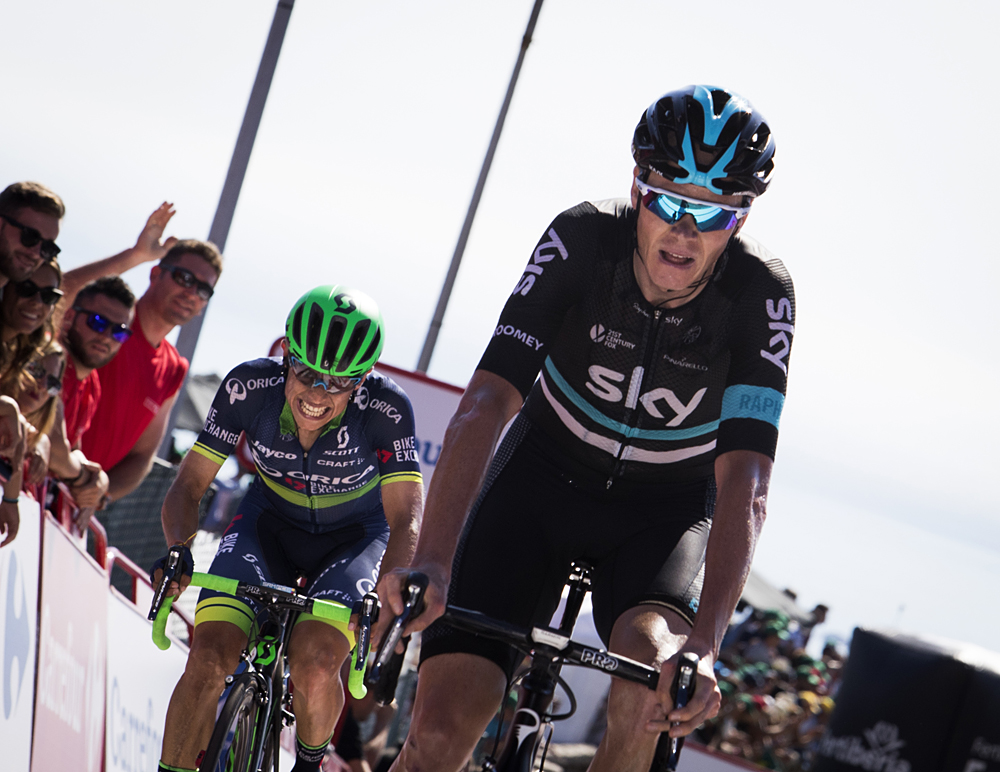
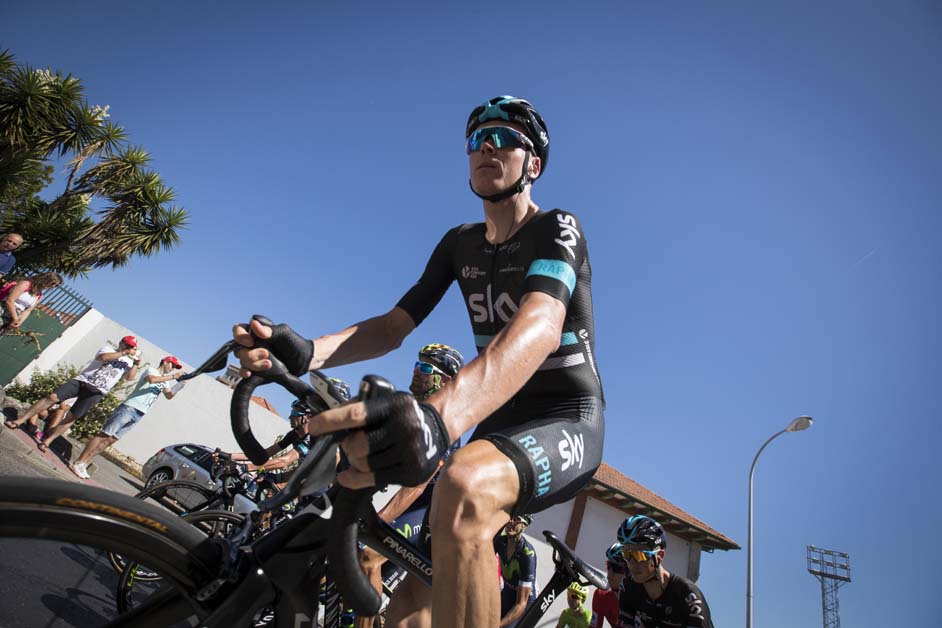
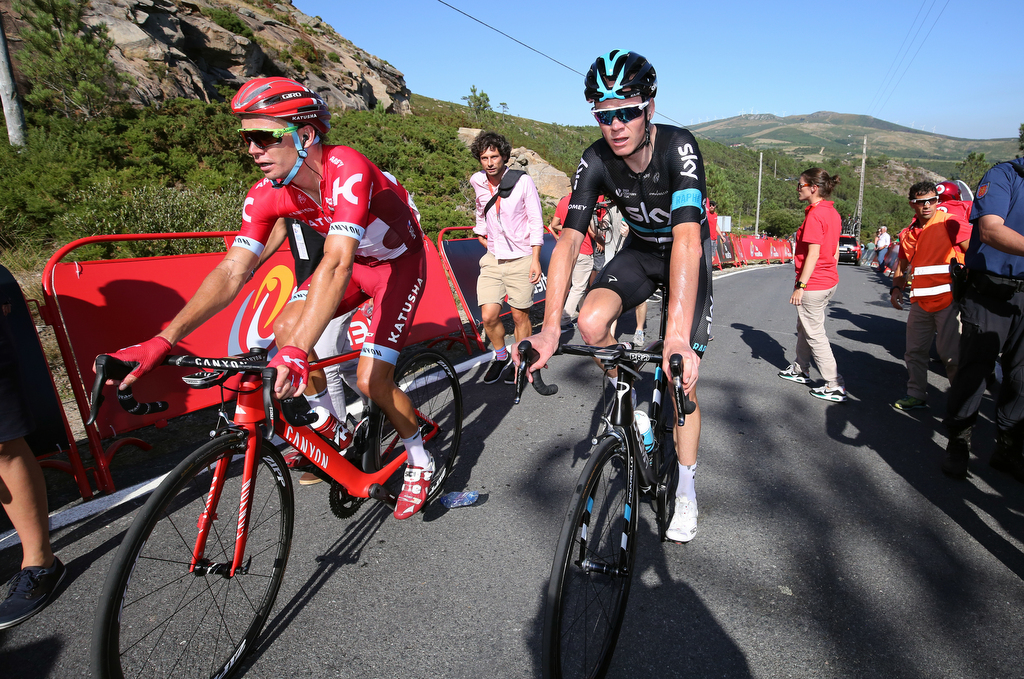
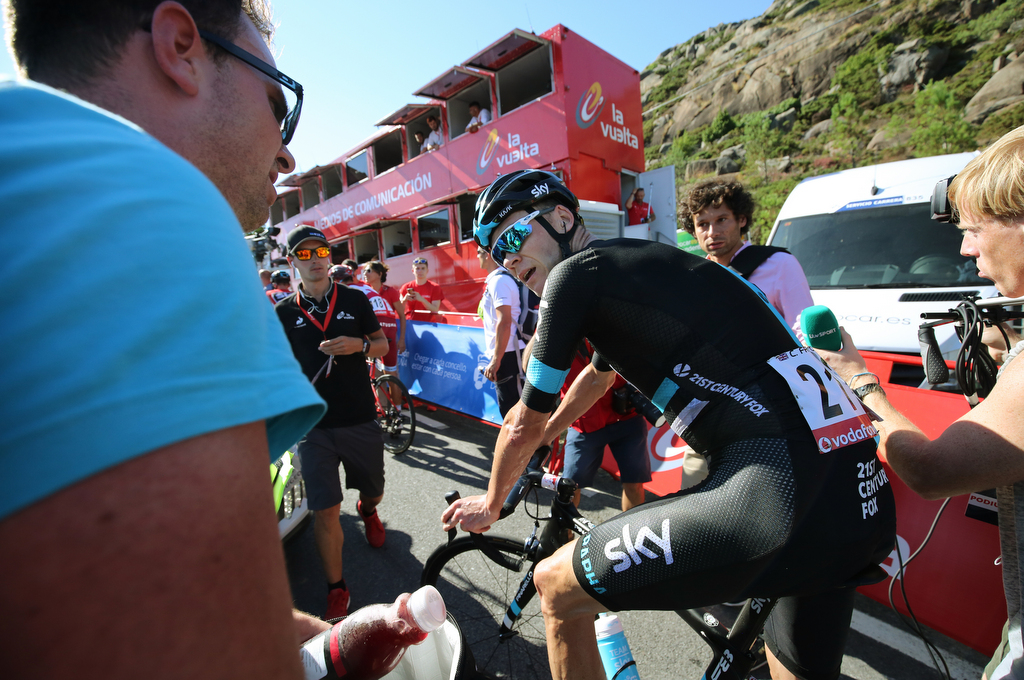
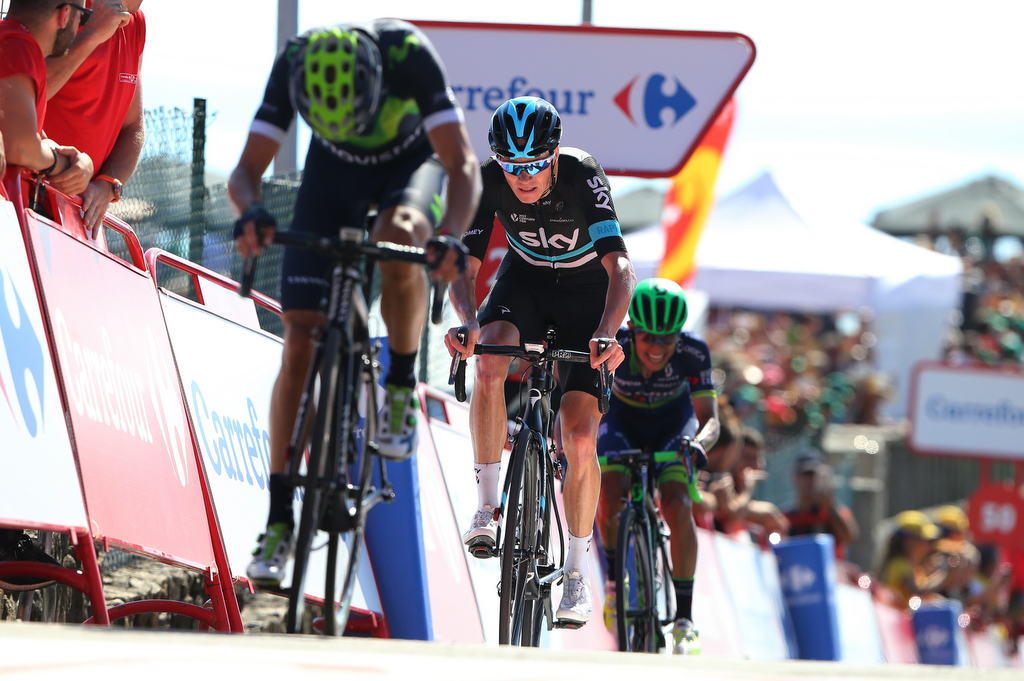
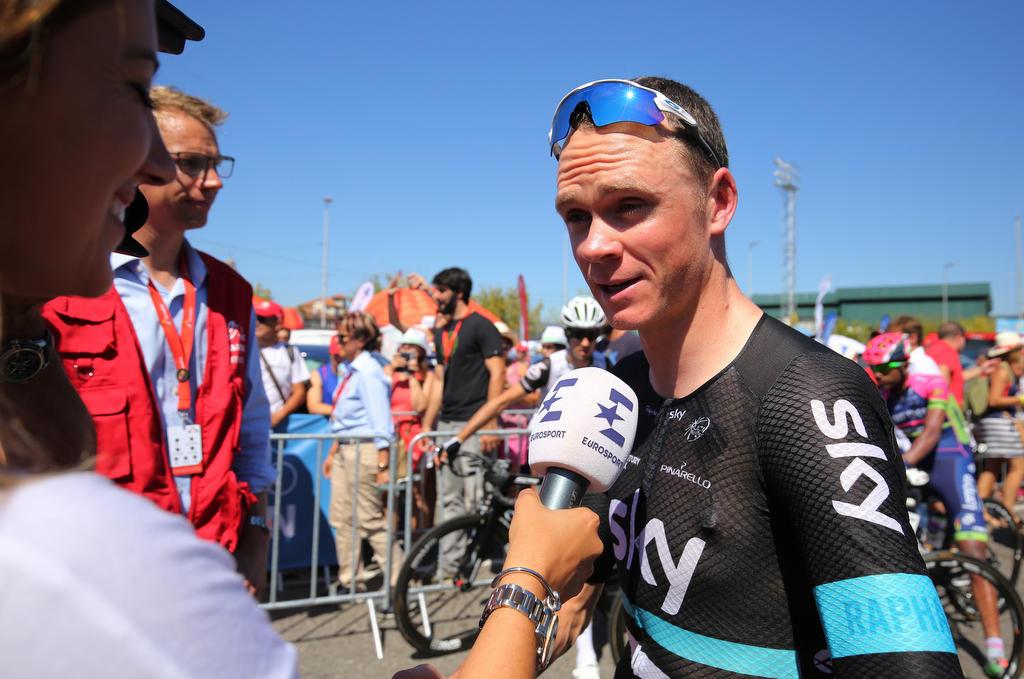
Chris Froome (Team Sky) turned in a relentlessly steady climbing performance on the Vuelta a Espana's first uphill finish on the Mirador de Ézaro to finish fourth on the stage on Alexandre Geniez (FDJ) and move into third overall, at 11 seconds, on new race leader Rubén Fernández (Movistar).
Sky rode strongly in the final part of the stage to close down the gap to a bare 2:20 seconds on stage winner Alexandre Geniez (FDJ) at the foot of the Ezaro climb, but when Froome then seemingly dropped off the pace from the favourites early on, there were expressions of surprise from Spanish radio commentators.
However, not all was as it seemed. Rather than risk overheating, the Briton rode steadily and at his own pace on the climb to come through a lot of the dropped riders and finish a solid fourth on the stage, 26 seconds behind Geniez, but in the same time as Alejandro Valverde (Movistar) and six seconds ahead of Nairo Quintana (Movistar). He also gained another chunk of time, 28 seconds, on Alberto Contador (Tinkoff).
"It was definitely a climb that could catch you out if you started it too fast," Froome told a small group of reporters after the finish. "It's easy to think it was only 1.7, 1.8 kilometers long and get a bit carried away, I think a few guys did that and paid the price for it in the last 500 metres."
"But I was quite happy with how it went, the guys did a really good job getting me into the climb in a good position, [and I have] a lot of respect for guy like Kwia [Michal Kwiatkowski] and Pete [Kennaugh] Obviously they have both been in the same time as me, and Kwia was in the red [leader's] jersey." That did not stop him, as Froome pointed out, from "being a good teammate and pulling me into the bottom of the climb like that."
Asked if he was very satisfied with his day, Froome answered simply "yes. Pete [Kennaugh] was not far behind and it's nice to have him up there as well. So I'm pretty happy." Kennaugh finished 15th on the stage at 1:02.
As for how he tackled the climb, disappearing from the front ranks early on but then returning to the fray with perfect timing, Froome said, "I was trying to ride at my own pace, at the bottom I did get gapped a bit from the leaders, but I kept clawing away and trying to get back to the front by last few 100 metres." As for whether it was the hardest climb he'd ever done, Froome said "It's seven minutes long, but for a short climb, you definitely know about it, it's similar to Mur de Huy but just longer I guess, and the steeper parts last for longer."
The latest race content, interviews, features, reviews and expert buying guides, direct to your inbox!
From here on, with Movistar now in control of the overall classification, Sky can ease back a little compared to when they were defending the leader's jersey and Froome argued that he would stick to his pre-race first week policy.
"Movistar definitely have a strong team, they are a team that can ride and control the race, for me it's about staying out of trouble, just choosing my moments."
The third week individual time trial is, even now, looming large on Froome's list of objectives. "Hopefully I can ride into the race a bit, obviously the time trial at end of the race is going to be a key stage, that's the stage I'm focusing on, for now just try to stay out of trouble."
Froome had a somewhat more uneven start to the Vuelta in 2015, riding increasingly stronger as the race turned north towards the Pyrenees, but he said it's "hard to compare how I'm feeling, every year is different. I'm in good shape now, but I definitely feel that give another week or so and hopefully I'll start feeling a bit better."
Video Highlights
Alasdair Fotheringham has been reporting on cycling since 1991. He has covered every Tour de France since 1992 bar one, as well as numerous other bike races of all shapes and sizes, ranging from the Olympic Games in 2008 to the now sadly defunct Subida a Urkiola hill climb in Spain. As well as working for Cyclingnews, he has also written for The Independent, The Guardian, ProCycling, The Express and Reuters.
